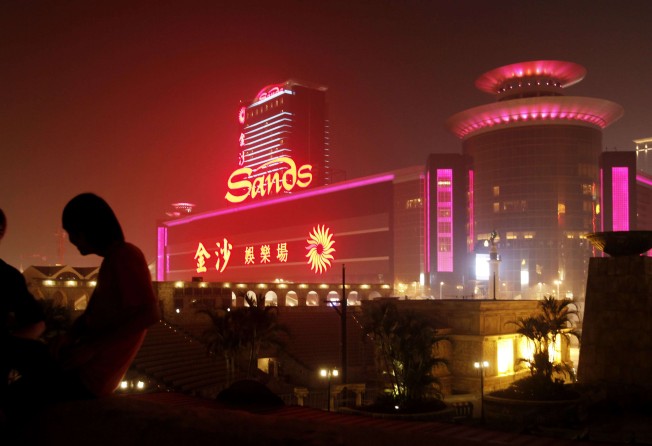
Beijing doesn’t want them, but what would Macau be without junkets?

When it comes to making a killing, you’d be hard pressed to find a business model more adept than the junket operators who procure, pamper and when required, punish the big-spending VIP gamblers who for decades have been the lifeblood of Macau’s casino industry.
Junkets – often owned or run by individuals of questionable provenance – are the firms which source, lend money and provide “extras” to men – and women – willing to lose HK$100,000 on the turn of a card and come back for more in the blink of an eye.
For this they pay the people who put up the capital to build and now run some of the most ostentatious and expensive casinos in the former Portuguese enclave a handsome rent, but nothing like as handsome as the lashings of cash which swell their considerable coffers.
And that’s just what you can see. It is widely acknowledged but rarely discussed by the powers that be, that under-the-table, off-the-book bets can make the legitimate stuff look like petty cash.
Without the junkets – and their often shady links to organised crime and racketeering, casinos in what has become the world’s gaming capital would not, and probably could not, have existed.

At the height of their money-making bonanza before 2014, it is reckoned that gross incomes from Macau’s casino VIP rooms accounted for at least 70 per cent of total gaming revenue.
This VIP gold rush can be largely explained in one word, China.
Macau has long been regarded as a conduit for corrupt officials and business people to bypass currency restrictions and transfer money out of mainland China.
In a 2013 annual report of the United States Congressional-Executive Commission on China, a Macau academic estimated that US$202 billion in ill-gotten funds were channelled through the city each year.
However, due to a combination of China’s economic slowdown, Beijing’s unprecedented anti-corruption drive and a paradigm shift in how Macau sees its economic – and political – future everything has changed.
The junkets are either on the run or, if they’re smart, on the make somewhere else, usually in less mature and well regulated gaming destinations in Asia such as the Philippines, Laos, Cambodia and Vietnam.

Last week at the opening of his US$3 billion development, The Parisian, on the Cotai Strip, none other than Sheldon Adelson, chairman of Sands China’s parent company, Las Vegas Sands, said the VIP golden days might never return.
“The number of junket representatives has shrunk dramatically over the last two years. It would have to regrow again to come back with the same vigour that we’ve experienced in the past. I’m not sure that’s going to happen because other locations are trying to pick up the excess market that’s no longer here,” said Adelson.
The US gaming tycoon was in large part referring to Macau’s Beijing-inspired switch from a gaming model centred on VIP revenues to one which looks to build the mass-market while diversifying into other areas, a direction of travel which Adelson’s mega-properties on the strip have been leading the way on in Macau.
An authoritative internal report recently produced for one of the biggest a gaming industry players in Asia which assesses the state of the junket business in Macau takes a similar line – but with some worrying caveats.

The 40-page report, seen by This Week in Asia, says: “The current political environment has forced junket operators to seek alternative avenues to raise capital, diversify their interests and expand into overseas territories as well as seek public listings.”
While some junkets have diversified their businesses into not unexpected areas such as pawnbroking, securities, investment and asset management, others have branched out into more unlikely areas such as equine management, travel, mining, property and manufacturing, the report notes.
“Others have sought to expand their gaming operations into jurisdictions with lax regulatory controls such as Saipan and Vanuatu,” the report goes on.

A casino security insider, who asked not to be identified, said: “The increase in Macau’s casino revenue in recent years and the continued reliance of casino operators on junkets to bring in customers from China ... has led to many people with triad and criminal backgrounds becoming millionaires.
“What do these newly rich criminals do with their wealth? They diversify and invest internationally. Some Macau casino junkets have purchased mines and plantations in Southeast Asia, farms in Australia and vineyards in Europe and the US.”
A Macau government report on the performance of the gaming operators who were granted concessions under the market liberalisation which swept away the 40 year monopoly of veteran tycoon Stanley Ho Hung-sun earlier this year admitted the junkets were problematic.
It called for a crackdown on under-the-table betting, better regulation of the junkets and a more centralised system of control on the issuing of loans and credit facilities.
The report also called for the Macau government to conduct undercover investigations against illegal gaming activities, such as under-the-table or side betting, which were continuing to take place in VIP rooms.